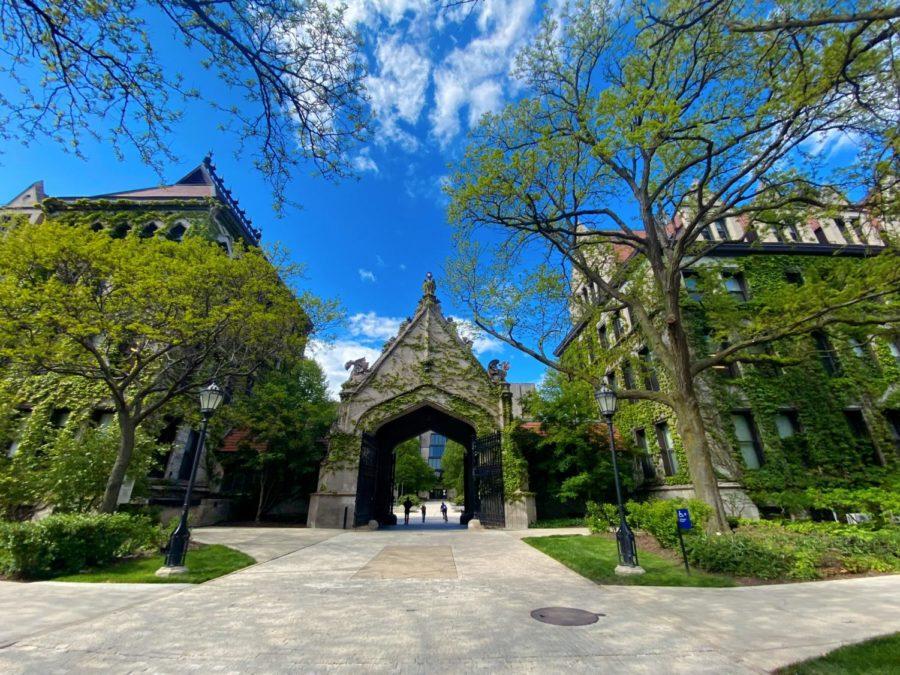UChicago geophysical sciences professor Dorian Abbot was disinvited from the annual John Carlson Lecture at the Massachusetts Institute of Technology (MIT) in September following backlash from MIT’s student body over Abbot’s public opinions on affirmative action and diversity, equity, and inclusion initiatives in higher education.
Robert van der Hilst, the chair of MIT’s Department of Earth, Atmospheric, and Planetary Sciences (EAPS)—which hosts the Carlson Lecture—cited a controversial op-ed Abbot coauthored in Newsweek titled “The Diversity Problem on Campus” when explaining the reason for the lecture’s cancellation.
Abbot has taught at UChicago since 2009 and became an associate professor in 2015. He researches climate change and the habitability of exoplanets and teaches a variety of courses, including the popular Global Warming course.
Abbot has been a figure of national controversy since August, when he co-wrote the Newsweek article with Stanford University professor Iván Marinovic. The op-ed expressed concerns about the increasing emphasis on diversity, equity, and inclusion (DEI) in many colleges and universities. Such initiatives, Abbot and Marinovic argued, are made at the expense of academic excellence and merit, thus actively harming the value of American institutions.
The op-ed compared the implementation of DEI curriculums to the rise of Nazi Germany, where “an ideological regime obsessed with race came to power and drove many of the best scholars out.” Van der Hilst cited this comparison as one of his key reasons for canceling the lecture.
The authors suggested that DEI should instead be replaced with another standard: Merit, Fairness, and Equality (MFE). The authors described MFE as a method “whereby university applicants are treated as individuals and evaluated through a rigorous and unbiased process based on their merit and qualifications alone.”
“Professor Marinovic and I wanted to express our opinions on a controversial topic openly. We hoped that this would encourage others to speak freely,” Abbot wrote in an email to The Maroon.
Abbot emphasized the values underpinning their proposed MFE system in an emailed response to The Maroon. “We suggest that universities should stop giving preferences to legacies, athletes, and donor children. We also suggest that universities should invest money in researching and implementing optimal techniques to improve K-12 education, particularly for children who are not currently receiving a high-quality education.”
Abbot was initially set to speak as a part of the Carlson Lecture Series in early 2020, but the event was postponed due to the COVID-19 pandemic.
In September, MIT students and other people affiliated with EAPS pushed the university and the department over social media and in meetings to rescind Abbot’s invitation publicly. The protestors argued that the selection of Abbot as a lecturer reflected a lapse in MIT and EAPS’s commitment to diversity, equity, and inclusion.
After the cancellation of his MIT lecture, Abbot was offered a lecture appearance by Robert George, the director of Princeton University’s James Madison Program in American Ideals and Institutions, which he gave on October 21 to a virtual audience of around 3,000. George, a well-known conservative intellectual, announced on Twitter that “MIT’s caving in to a cancel mob’s demand to disinvite a distinguished scientist who had been invited on the basis of his achievements to give an honorific lecture shows just how badly science today has been politicized. The integrity of science can’t survive politicization.”
In response to MIT’s decision, Abbot penned another op-ed, published in the Wall Street Journal in late October. Abbot framed his personal beliefs as concerns for equality, the prioritization of academic merit in the admissions process, and the separation of the scientific process from politics. He wrote, “I believe that every human being should be treated as an individual worthy of dignity and respect. In an academic context, that means evaluating people for positions based on their individual qualities, not on membership in favored or disfavored groups. It also means allowing them to present their ideas and perspectives freely, even when we disagree with them.”
In his Wall Street Journal op-ed, Abbot re-emphasized the key points from his op-ed with Marinovic on which he has elaborated in various Twitter posts. He made similar arguments about merit-based admissions, separating politics and science, and political sensitivity on campus to those he had previously voiced on Twitter.
This is not the first time Abbot’s political views have caused controversy. Last year, Abbot released a Google Doc on Twitter titled “My Perspective on the Controversial Events of 11/13/20-11/15/20.” The document addresses a since-deleted videotaped slideshow that Abbot had shared with geophysical sciences department faculty in November 2020, explaining his belief that academia marginalizes people on the basis of political belief and exhibits bias toward women and non-Asian people of color.
Abbot’s slideshow and follow-up document, which were circulated around the UChicago community, were met with criticism. Particularly controversial was a slideshow that compared the cultural trajectory of college campuses to the Holodomor, the 1932–33 genocide that killed millions of ethnic Ukrainians.
When asked why he released the document, Abbot stated, “I wanted to present those slides internally in my department, but was refused. I posted them on YouTube as a way to share them with my department. I did not realize they would get shared widely, and people started writing mean things to each other in the comments, which was not something I expected or was happy about. I’ve since learned that this is typical of discussions on the internet.”
Abbot, along with Chancellor and former University president Robert Zimmer, is listed as being on the board of advisors for the newly announced University of Austin, which is set to launch its undergraduate college in 2024.









